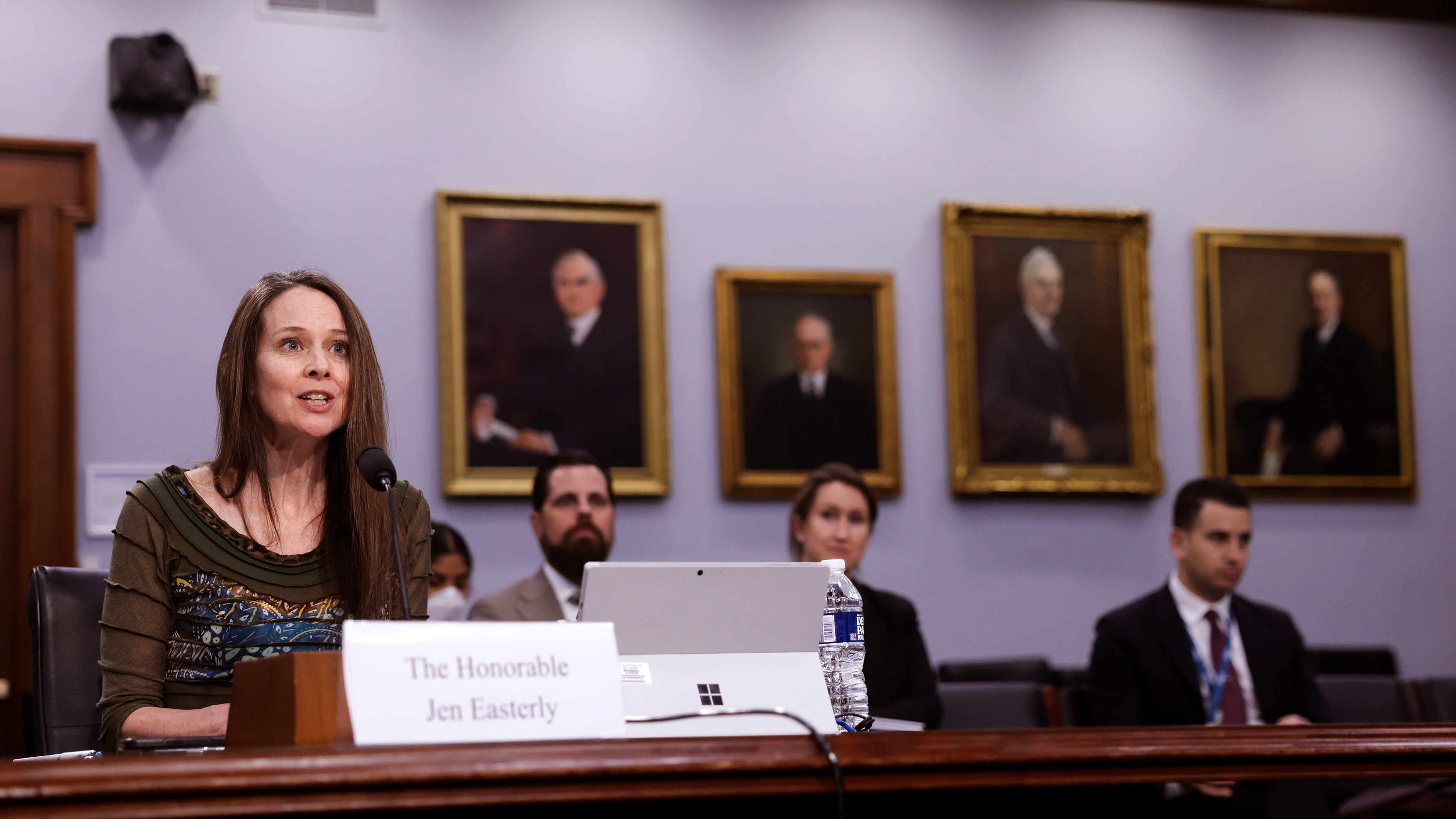What is the Cybersecurity and Infrastructure Security Agency (CISA) and what does it do?
CISA plays a critical role in keeping US organizations safe from cyber attacks, providing vital advice and threat information


With cybersecurity threats surging globally, organizations such as the US Cybersecurity and Infrastructure Security Agency (CISA) play a critical role in keeping businesses informed and reacting to incidents.
CISA operates in a similar fashion to the UK’s National Cyber Security Centre (NCSC). Whereas the NCSC is a division of GCHQ, CISA falls under the operational umbrella of the Department of Homeland Security (DHS).
Fundamentally, it’s a federal agency dedicated to securing national security and ensuring the resilience of federal agencies.
But its role isn’t limited to protecting government departments. The agency works closely with industry partners spanning a range of sectors to reduce the threats posed by hackers to both digital and physical infrastructure.
Officially launched in 2018, the agency now has thousands of employees working to protect national security in cyberspace, and works closely with other US security and defense agencies.
Since launching, its responsibilities have expanded greatly in response to the growing threats posed by cyber criminals and state-backed threat groups.
Here’s everything you need to know about CISA.
Sign up today and you will receive a free copy of our Future Focus 2025 report - the leading guidance on AI, cybersecurity and other IT challenges as per 700+ senior executives
What does CISA do?
CISA’s self-stated objective is to create a “secure and resilient critical infrastructure for the American people”.
What this means is that the agency leads up national efforts to uncover and contend with dangers to cyber and physical infrastructure. The agency’s three main mission areas span cyber security, infrastructure security, and emergency communications.
When a US business or organization falls victim to a cyber attack, CISA provides vital support to help alleviate the impact. The agency acts in a similar fashion to the NCSC in this regard, collaborating with relevant law enforcement agencies and industry stakeholders.
CISA’s role isn’t limited to response, however. The agency provides a range of information sharing services aimed at enabling businesses to keep up with emerging security threats.
The agency is split into seven distinct, yet collaborative, divisions. These include the Cybersecurity Division, the Infrastructure Division, the Emergency Communications Division, and the Stakeholder Engagement Division.
Other divisions with CISA include the Integrated Operations Division, the National Risk Management Center, and the Mission Enabling Offices.
Information sharing and threat alerts
IT professionals may know CISA best for its cyber threat alert service. As part of its role, the agency issues regular warnings to businesses about emerging cybersecurity threats, as well as breaches, and vulnerability disclosures by businesses, known as the known exploited vulnerability (KEV) list.
The KEV list plays a critical role in keeping businesses and security practitioners informed about all the latest threats they could face in daily operations.
As part of the service, this also includes recommendations from CISA on how organizations can mitigate risks and how to patch vulnerabilities.
Certifications and training schemes
Much like its UK counterpart, CISA offers training and education on cyber security for a wide range of people, including federal employees, private sector cyber professionals, educators, and the general public.
These training schemes are aimed at bolstering awareness of cybersecurity and helping to deliver what the agency describes as the “cyber-ready workforce of tomorrow”.
With cyber security skills shortages continuing to plague organizations globally, these schemes play a vital role in helping bolster broader awareness of this profession and subject area - and also to help keep the public safe and informed about security risks.
There are a number of CISA-led exercises available to both organizations and individuals, all of which are aimed at providing practical, real-world skills to contend with threats and to improve best practice.
RELATED WHITEPAPER

This includes ‘Tabletop Exercise Packages’, which are practical sessions designed to arm industry stakeholders with the tools and technical knowledge to respond to cybersecurity incidents.
Other schemes include incident response training, which is available for free and accessible to the general public. This provides participants at beginner and intermediate levels to improve their cybersecurity awareness, and includes hands-on training courses.
A full list of CISA training schemes can be found here.
Who leads CISA?
CISA’s inaugural leader was Christopher Krebs, who served as director from November 2018 until November 2020, when he was fired by former president Donald Trump for disputing electoral fraud claims in the 2020 presidential election.
The agency’s current director is Jen Easterly, who was nominated by President Biden to take up the position in April 2021, and shortly after was confirmed by the Senate.
A US Army veteran, Easterly worked as a special assistant to former President Barack Obama and served as senior director for counterterrorism on the US National Security Council.
After serving in government, Easterly held senior roles at Morgan Stanley; first as head of firm resilience, then later as the financial institution’s first global head of the Morgan Stanley Cybersecurity Fusion Center.
As part of her role as director, Easterly leads CISA’s operations alongside the executive leadership team, which includes:
- Nitin Natarajan, deputy director
- Brandon Wales, executive director
- Kathryn Coulter Mitchell, chief of staff

Ross Kelly is ITPro's News & Analysis Editor, responsible for leading the brand's news output and in-depth reporting on the latest stories from across the business technology landscape. Ross was previously a Staff Writer, during which time he developed a keen interest in cyber security, business leadership, and emerging technologies.
He graduated from Edinburgh Napier University in 2016 with a BA (Hons) in Journalism, and joined ITPro in 2022 after four years working in technology conference research.
For news pitches, you can contact Ross at ross.kelly@futurenet.com, or on Twitter and LinkedIn.
-
 Chinese hackers are using ‘stealthy and resilient’ Brickstorm malware to target VMware servers and hide in networks for months at a time
Chinese hackers are using ‘stealthy and resilient’ Brickstorm malware to target VMware servers and hide in networks for months at a timeNews Organizations, particularly in the critical infrastructure, government services, and facilities and IT sectors, need to be wary of Brickstorm
-
 Do you really need to fix that critical flaw?
Do you really need to fix that critical flaw?News Many CVEs represent no risk in a cloud container environment, researchers claim
-
 CISA issues warning in wake of Oracle cloud credentials leak
CISA issues warning in wake of Oracle cloud credentials leakNews The security agency has published guidance for enterprises at risk
-
 Warning issued over ‘fast flux’ techniques used to obscure malicious signals on compromised networks
Warning issued over ‘fast flux’ techniques used to obscure malicious signals on compromised networksNews Cybersecurity agencies have issued a stark message that too little is being done to sniff out malware hiding in corporate networks
-
 Five Eyes cyber agencies issue guidance on edge device vulnerabilities
Five Eyes cyber agencies issue guidance on edge device vulnerabilitiesNews Cybersecurity agencies including the NCSC and CISA have issued fresh guidance on edge device security.
-
 Two notorious infostealer malware operations were just knocked offline
Two notorious infostealer malware operations were just knocked offlineNews Infrastructure linked to two major infostealer malware strains has been seized in a joint law enforcement operation
-
 CISA breached a federal agency as part of its red team program — and nobody noticed for five months
CISA breached a federal agency as part of its red team program — and nobody noticed for five monthsNews A red team assessment performed by CISA on an unnamed federal agency found a series of critical security weaknesses
-
 This ransomware variant has now been used against 500 targets — here's what you need to know
This ransomware variant has now been used against 500 targets — here's what you need to knowNews One form of ransomware has become a ‘significant threat’, US authorities have warned - here’s how to protect yourself

